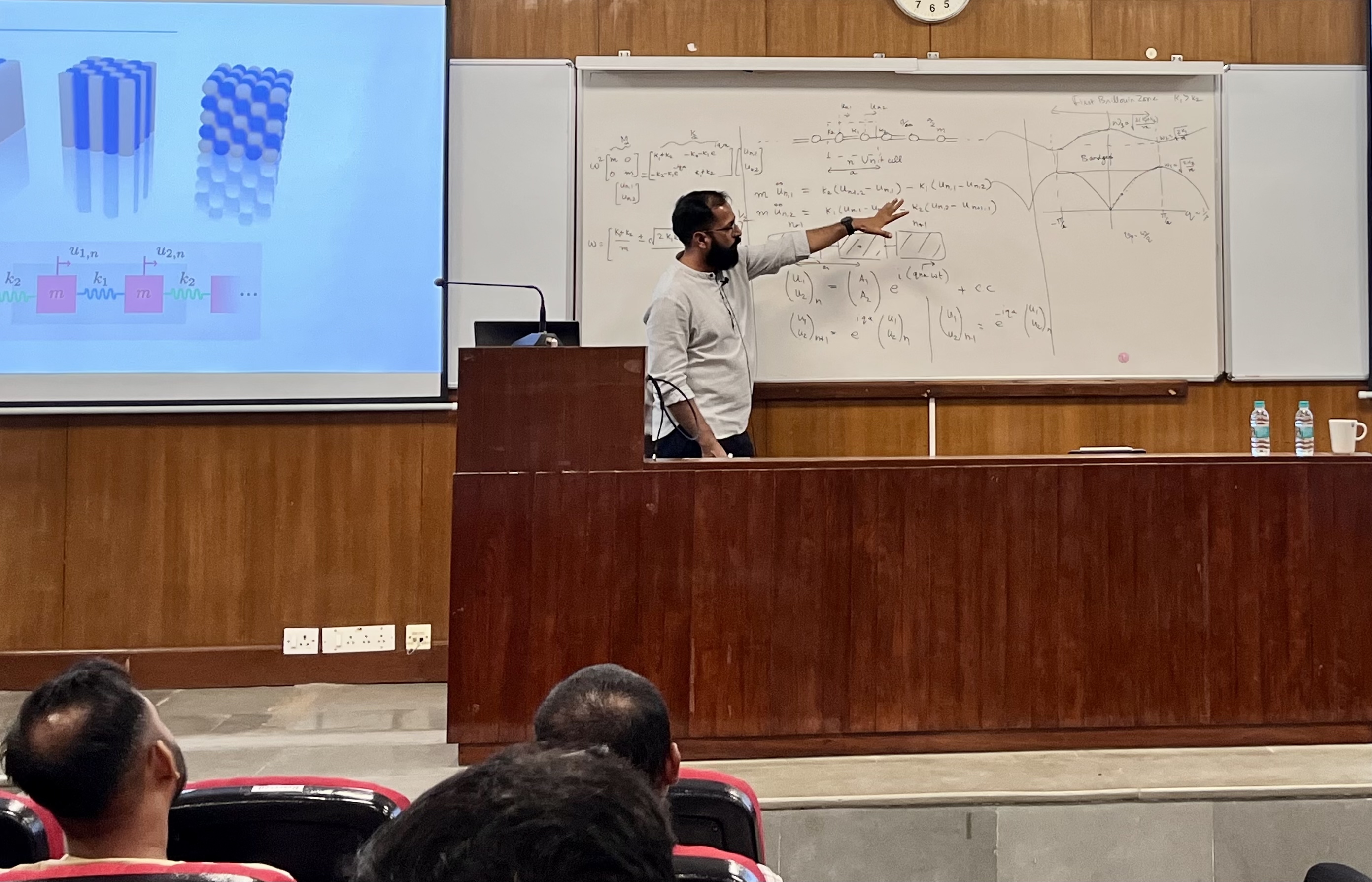Teaching

We are dedicated to engaging students in both fundamental and advanced topics in Aerospace Engineering and related fields. Our courses emphasize mathematical rigor, physical intuition, and real-world applications, equipping students with the necessary tools to tackle complex engineering challenges.
Below is an overview of the graduate-level courses offered:
AE 211: Mathematical Methods for Aerospace Engineers (Aug–Nov) [Co-instructor]
This foundational course provides essential mathematical tools for Aerospace Engineering, covering linear algebra, complex analysis, and differential equations. The focus is on developing problem-solving skills and mathematical intuition, enabling students to apply these techniques to real-world engineering applications.
AE 264: Vibrations (Jan–Apr)
This course explores the science of vibration in engineering structures, covering both discrete and continuous systems. Topics include the principle of virtual work, D’Alembert’s principle, constraints and generalized coordinates, Lagrange’s equation, and the free and forced vibrations of multi-degree-of-freedom systems. Applications span aerospace, mechanical systems, and structural dynamics.
AE 292: Nonlinear Dynamics (Jan–Apr) [Co-instructor]
This course offers a beginner-friendly introduction to nonlinear dynamical systems and chaos theory, with applications in engineering and physical sciences. Students explore stability analysis, bifurcations, and deterministic chaos, gaining insights into how nonlinearity shapes real-world systems.
AE 351A: Wave Propagation in Designed Materials (Jan–Apr)
This advanced course examines wave propagation in engineered materials, including metamaterials and phononic crystals. Students investigate wave behavior in continuum, periodic, and locally resonant systems, with a focus on acoustic and elastic waves. Cutting-edge topics such as nonlinear effects, topological wave states, and time-modulated systems provide a window into the future of material design and engineering applications.
Students interested in these topics are encouraged to participate in our courses and explore related research opportunities.